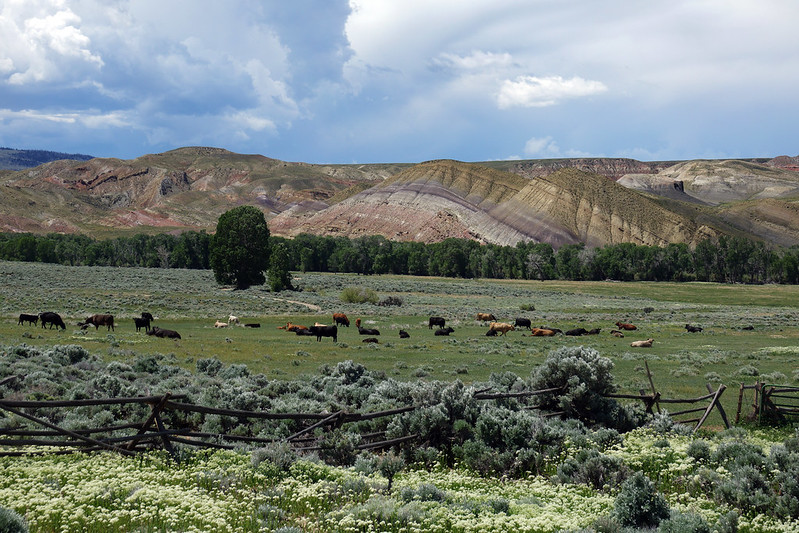
Wyoming is something like a western turned landscape. Image by John Fowler via flickr.com. License: Creative Commons
Wyoming recently passed a law that creates a new legal form for Decentralized Autonomous Organizations (DAOs): DUNA.
It is not surprising that the US state of Wyoming is playing a pioneering role in Theme DAO.
As early as 2021, the Senate passed a law that allows DAOs to be registered as LLCs, essentially the American version of the GmbH. This already created long-awaited legal certainty for DAO members in liability issues, while it massively simplifies the official registration of a DAO. The result is that more than 1,000 companies are already registered in Wyoming with DAO in their title.
But the new law goes even further. It not only integrates DAOs into existing legal forms – but creates a new one: the “Decentralized Unincorporated Nonprofit Association”, or DUNA for short.
Such a DUNA can generate profits, but may only use them for non-profit purposes. It may not share profits with members through dividends or other means, but may pay its members, administrators and others reasonable compensation for services.
A DUNA may acquire, hold and sell real estate or interests therein and may be the beneficiary of contracts or funds. For this purpose, DUNA can authorize a person to carry out the transactions by issuing a corresponding authorization.
DUNA is a legal entity independent of its members, which is why they are not liable if the DAO breaks contracts or is otherwise guilty. DUNA can become the target of a lawsuit, but can also initiate a lawsuit itself as a legal entity and, for example, obtain a debt instrument.
However, DUNA is not completely “decentralized” and “autonomous”. The law assumes she has a mailing address, either in Wyoming or outside of it. Apparently it doesn’t work without a person who fills out forms and has a physical address.
In addition to these basic guidelines, the proposed law goes to great lengths to define the various elements and roles of a DUNA on almost 46 pages – a decentralized ledger, smart contracts, administrators, members and more – and the interaction between members and DAO in detail to decline. These details may be tiring for laypeople, but extremely interesting for lawyers or DAO founders.
With these many details, the legal form of DUNA lays down certain guidelines on how such a DAO should be designed in the smart contracts themselves. Not every DAO can become a DUNA, but only if the onchain requirements apply. At the same time, the law makes it possible for a DAO to leave the blockchain without slipping into legally uncertain waters.
The fact that Wyoming decides to define such a legal form for non-profit organizations naturally limits its scope. At the same time, it is working on an application that is a perfect fit for DAOs. So it’s conceivable that we’ll see a lot of non-profit DAOs when the law goes into effect on July 1st.
Source: https://bitcoinblog.de/2024/03/14/usa-wyoming-fuehrt-neue-rechtsform-fuer-non-profit-daos-ein/


